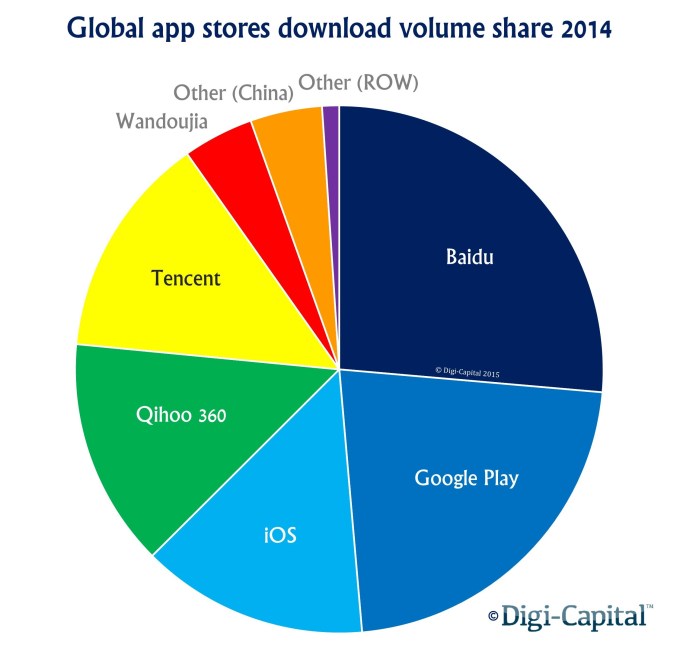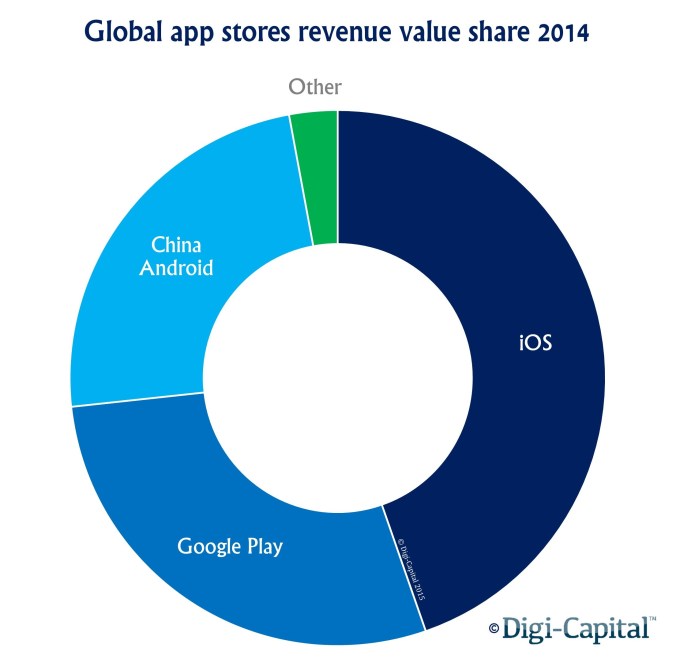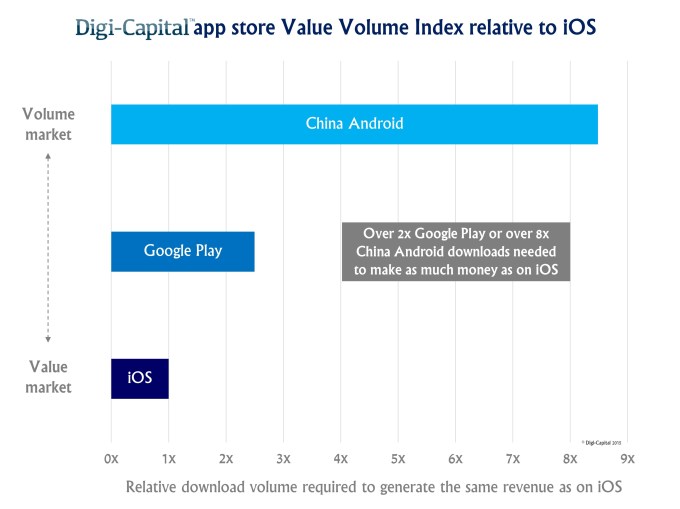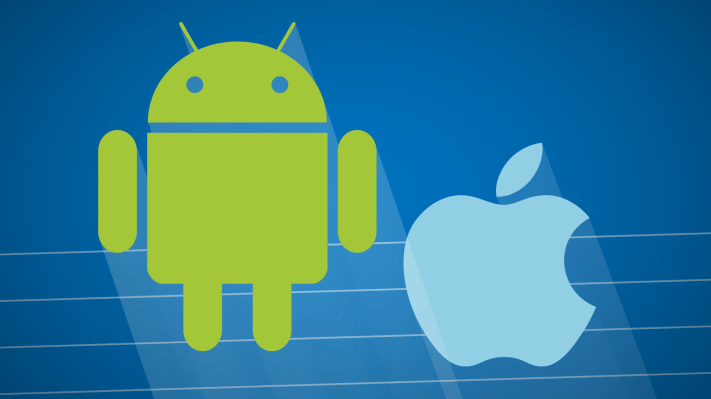A new study out this morning upsets the traditional thinking that iOS applications make more money for mobile developers when compared to those that run on Android devices. Instead, after taking into account the large number of non-Google Play Chinese Android app stores in existence, advisory firm Digi-Capital found that not only did Android dominate download volumes in 2014, it also made more money than iOS last year.
When it comes to understanding the dynamics in the mobile app ecosystem, the accepted wisdom is that Android leads the world in terms of app downloads, but iOS apps make more money for their developers than those sold on Google Play. This remains true, according to numerous reports – including the latest from app store analytics firm App Annie out earlier this month, which stated that, as of Q1 2015, iOS App Store worldwide revenue was about 70 percent higher than on Google Play, up from 60 percent in Q3 2014.
But in China, the battle between Android and iOS is not one involving the duopoly that is iTunes versus Google Play.
That’s why Digi-Capital’s analysis examined all the major app stores in China, including Apple, but also Baidu, Qihoo 360, Tencent, Wandoujia, and other smaller ones.
“Apple and Google took very different approaches to China. Apple embraced China with spectacular success, but Google ultimately exited,” explains Tim Merel, Managing Director at Digi-Capital. “Together with China’s inherent strengths and business dynamics, the Chinese app ecosystem now looks fundamentally different to all other markets,” he says.
When you take into account these other app stores, iOS and Google Play are in the minority of app downloads globally. (See chart below). But downloads alone don’t equate to revenue, as many other reports have already indicated.

However, while the iTunes App Store still generates the most revenue of any one individual app store globally – meaning it’s true that iOS tops Google Play when it comes to revenue – it doesn’t “beat” Android as a whole when the long tail of Android app stores are combined and taken into consideration.
Instead, the new report finds that in 2014, the Android app stores combined passed iOS revenue on a global level for the first time.

That being said, for mobile developers, targeting the iTunes App Store is in some ways an easier way to generate revenue because its apps make more money per download than on other individual app stores. Apps sold on iTunes can, in fact, make more money than on Android with relatively lower numbers of downloads – even when they way they generate that revenue is through paid downloads as opposed to in-app purchases.
Meanwhile, on Google Play, apps need over twice the download volumes than on iOS to generate the same amount of revenue. That means that developers have to hit high download numbers in order to be successful there.
“Google Play is a great place to operate, but the long-term trend of lower revenue value per download compared to iOS seems set to continue,” says Merel.
Similarly, the Chinese app stores (Baidu, Qihoo 360, Tencent, Wandoujia, and others) also require high download numbers in order to generate significant revenue. According to Digi-Capital, apps in China must hit more than eight times the number of downloads on average compared to iOS to make the same amount of money. (This is a comparison with iOS versus Chinese Android globally, not just in China specifically, the report notes.)

Because of the volume nature to the Chinese app stores, distribution relationships there are critical as they can help apps reach a larger number of customers and therefore, downloads.
Still, despite the fact that the Chinese Android app stores are today dominating in downloads and revenue, the balance could shift again by the end of 2015, the report says. Apple has been successfully targeting the Chinese market with its devices, with strong sales thanks to the new, larger iPhone 6 models that allowed it to head off rivals like Xiaomi, Huawei, and Samsung. Apple had the highest smartphone market share in China in Q1 in terms of sales, and it grabbed a record 25% of smartphone sales in China’s urban markets this year.
